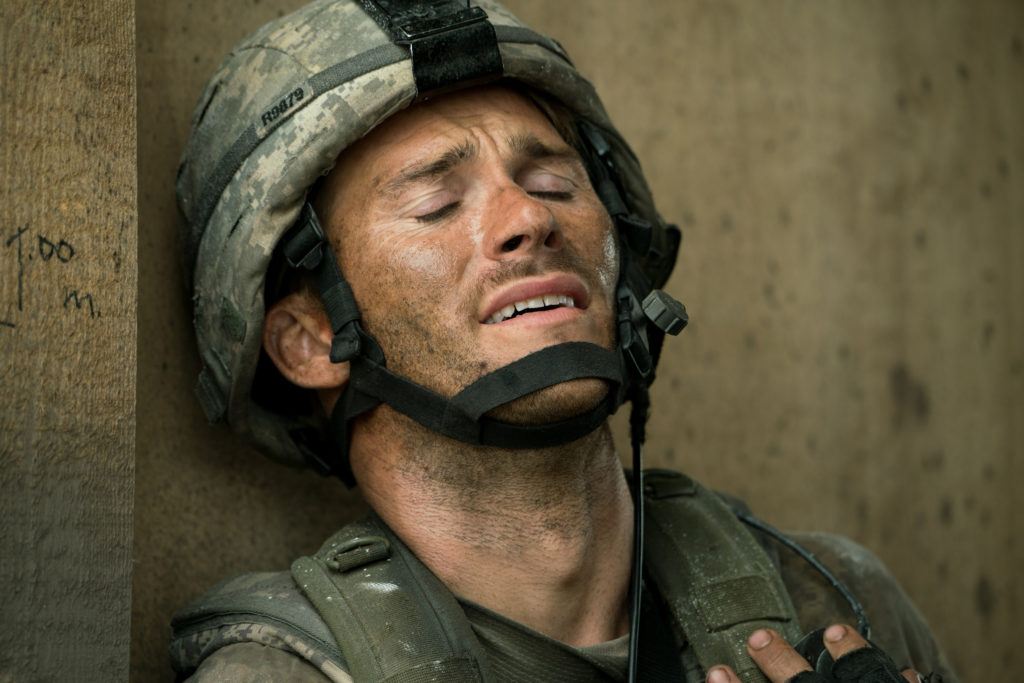The Outpost

Scott Eastwood stars in THE OUTPOST. (Photo: Screen Media Films)
A wide-eyed American soldier arrives at the barracks at Combat Outpost Keating in 2009, glances up from his bunk, and sees a message scrawled by his predecessor: “It doesn’t get better.”
Fortunately, the same can’t be said for The Outpost, an immersive salute to bravery and sacrifice on the front lines inspired by one of the bloodiest battles in the War in Afghanistan.
Even as it struggles to differentiate itself from other gritty tales of wartime heroism in the Middle East, any familiarity is redeemed by a riveting final hour depicting the brutal Battle of Kamdesh, in which members of an outnumbered American squadron were ambushed by Taliban insurgents.
Keating was dangerous primarily because of its remote mountain setting near the Pakistani border. The uneasiness is palpable among the troops, who are telling jokes one second and engaged in a high-stakes firefight the next.
The film uses introductory title cards for dozens of names and places, but viewers probably won’t remember most of them. However, it also showcases the soldiers’ camaraderie — sort of a coping mechanism amid the chaos — including some good-natured ribbing to break the tension, the bittersweet calls back home, and the collective solemnity when one of their own is lost.
The participants include a sergeant (Scott Eastwood) who rallies his comrades, an emotionally troubled Army specialist (Caleb Landry Jones), and the respected base commander (Orlando Bloom) who tries to negotiate peace with the local elders.
As the announced closure of the outpost is repeatedly postponed, the confrontations increase in frequency and intensity, making a final showdown inevitable.
The screenplay, adapted from a nonfiction book by television journalist Jake Tapper, prefers to focus on the day-to-day routine of the soldiers rather than the broader military strategy or foreign-policy decisions that put them in harm’s way — although that resentment simmers beneath the surface. Some character depth is relinquished in the translation from page to screen.
As directed with hand-held cameras by Rod Lurie (The Contender), the film conveys an intimate boots-on-the-ground authenticity while viscerally capturing the rugged terrain and oppressive conditions.
Eschewing cheap flag-waving patriotism, The Outpost is intended first and foremost as a tribute to the courage of the troops, who are simply following orders in a war that might never be won. In that sense, the film accomplishes its mission.
Rated R, 123 minutes.